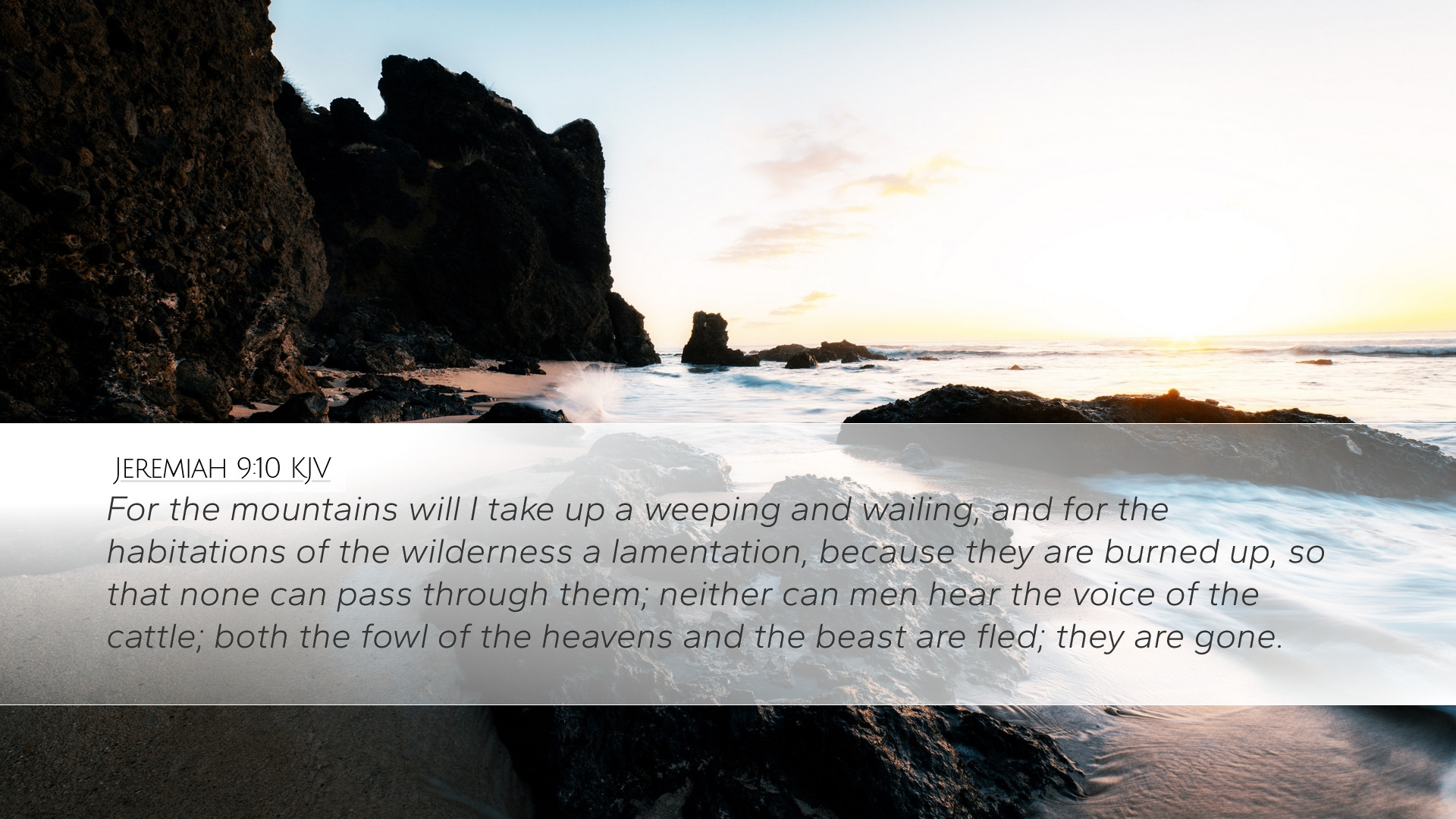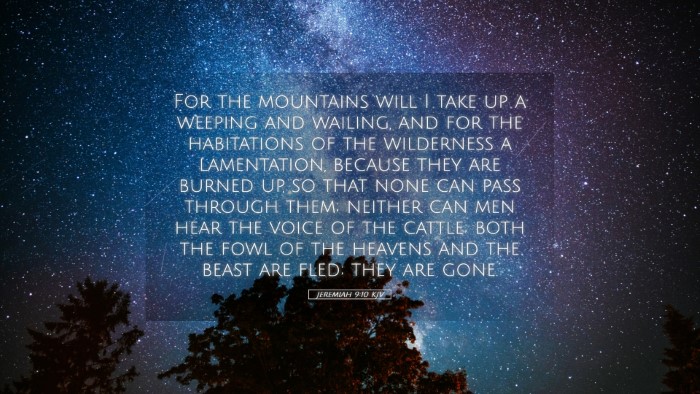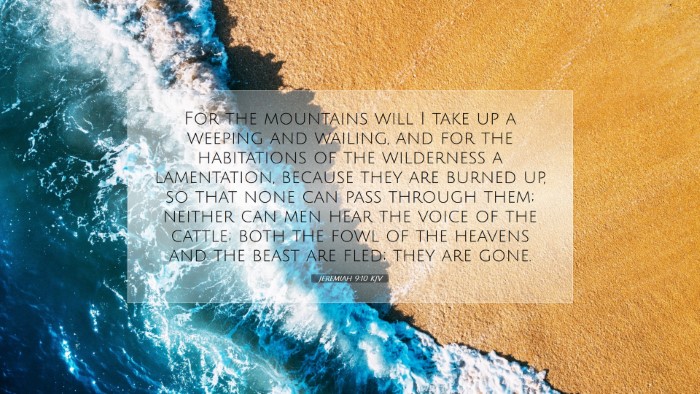Commentary on Jeremiah 9:10
Verse Context: Jeremiah 9:10 reads, "I will take up weeping and wailing for the mountains, and a lamentation for the pastures of the wilderness, because they are burned up, so that no one can pass through them; and the cattle have wandered off, and are no more."
Introduction
The lament found in Jeremiah 9:10 encapsulates a profound sense of mourning over the destruction of the land of Judah. It reflects the emotional depth of the prophet Jeremiah as he witnesses the consequences of Israel's unfaithfulness to God.
Analysis of the Text
The verse begins with the emotional expression of weeping and wailing, indicative of deep sorrow and distress. Jeremiah uses vivid imagery to portray a desolate landscape – the mountains and pastures, once teeming with life, are now burnt and barren.
The Significance of the Mountains
Matthew Henry notes that mountains often symbolize stability and permanence. Their desolation signifies a loss of security for the people of Judah. With the mountains grieving, Jeremiah emphasizes the gravity of the situation – nature itself mourns alongside the prophet.
The Wasteland of the Pastures
Albert Barnes elaborates on the ‘pastures of the wilderness’ becoming desolate. The image serves as a metaphor for spiritual desolation. Just as the land can no longer support livestock, so too can Judah no longer thrive under the judgment of God. The loss of cattle further signifies the loss of prosperity and sustenance.
Cattle and the Symbol of Community
Adam Clarke emphasizes the importance of cattle in ancient Israelite society, representing wealth and community. Their wandering off reflects societal disintegration and spiritual decline. The absence of these animals allows for the imagery of loss to resonate deeply within the societal context.
Thematic Insights
- Divine Judgment: The desolation described in this verse is a manifestation of God’s judgment against sin. Jeremiah's lament contrasts the former glory of the land with its current state of ruin.
- The Role of Prophecy: Commentators agree that the role of the prophet extends beyond foretelling; it includes lamentation, intercession, and calling to repentance.
- Nature as a Witness: The person's emotional struggle transcends mere human experience; nature itself is seen as a witness to the consequences of sin. This points to a broader theological understanding of creation reflecting the Creator's grief due to human actions.
Pastoral Reflections
This passage offers rich material for pastors and theologians. Drawing from Jeremiah's emotional response, leaders can reflect upon their own communities’ spiritual health. How often do we observe spiritual desolation resembling the barren pastures of Jeremiah's day?
Pastors might ask: Are we truly weeping for the desolation around us – the wanderings of those who were once among us? This lamentation should spur us towards a ministry of hope, calling for repentance and restoration much like Jeremiah did.
Conclusion
Jeremiah 9:10 serves as both a historical lament and a timeless call to understand the weight of national and spiritual failure. By combining the insights of revered commentators, we glean a deeper understanding of the profound grief surrounding sin’s consequences. The verse beckons us to acknowledge the loss, both individually and communally, and to rekindle our commitment to restoration and faithfulness.


